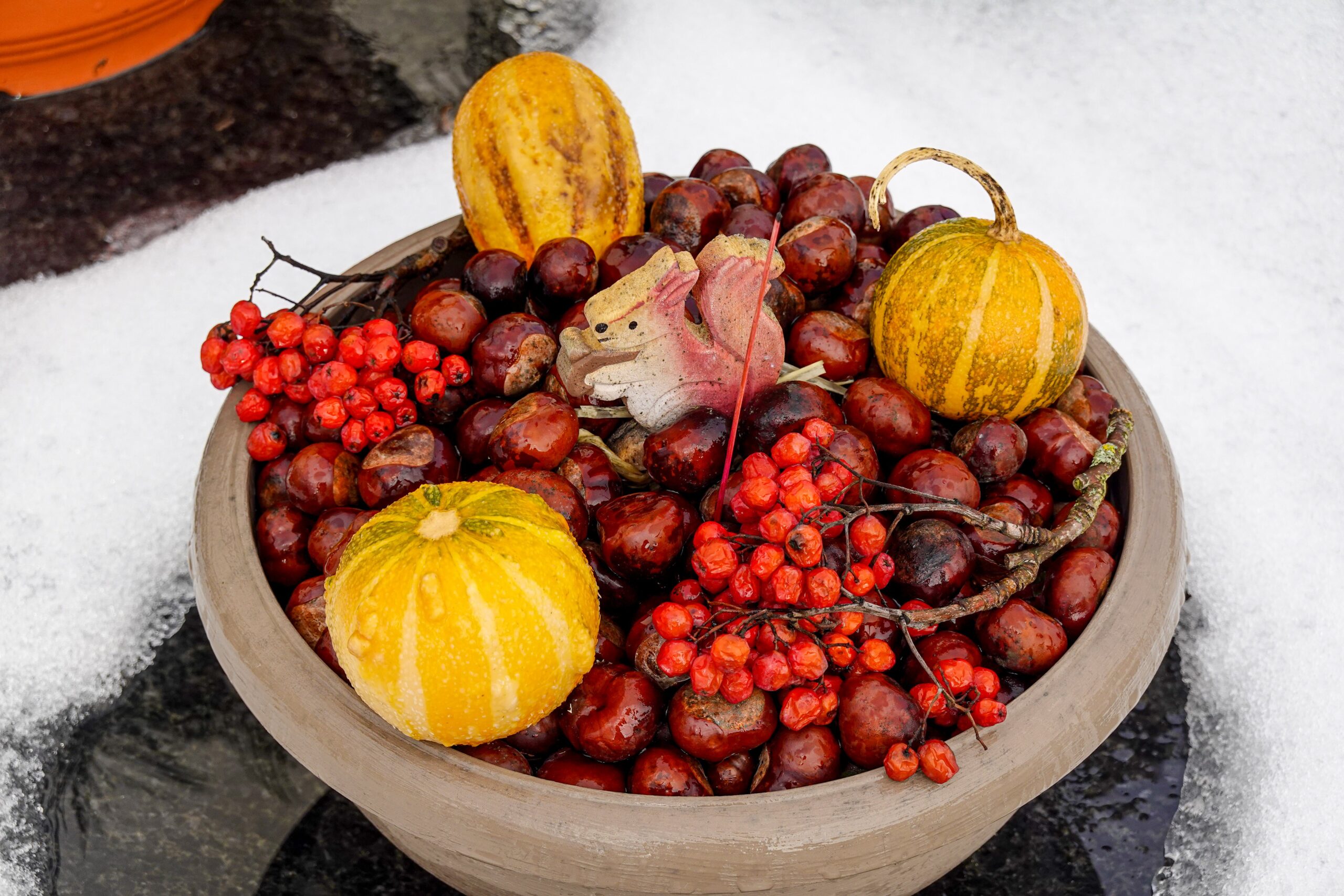Winter is the season that brings with it chilly weather and the desire for warm, best comfort food. While it might be tempting to indulge in hearty stews and casseroles, it’s essential not to neglect the importance of incorporating fresh winter time fruits into your winter diet. In this article, we’ll explore the top ten winter time fruits that not only add a burst of flavor to your meals but also pack a nutritional punch to keep you healthy and vibrant throughout the winter season. Best fruit for skin, heart, brain, including all the details that how fruits increase heathy life time span?.
I.Introduction
As the winter months settle in, it becomes crucial to pay attention to what winter time fruits we eat to support our overall healthy lilfe. Embracing winter time fruits is a fantastic way to ensure that the necessary vitamins for human body and minerals to ward off winter blues and maintain robust well-being. Fruits In Season Winter is huge number for peope.
Exploring Winter Time Fruits (Fruits In Season Winter):
1) Pomegranates: Jewels of the Winter Season
Showcasing the Nutrient-Rich Profile of Winter Time Pomegranates
Winter time pomegranates, often hailed as the jewels of winter, boast a nutrient-rich profile. They are a rich source of antioxidants, particularly punicalagins and anthocyanins, which contribute to their vibrant red hue.
Unveiling the Health Benefits of Indulging in Winter Time Pomegranates
The health benefits of indulging in winter time pomegranates are extensive. From promoting heart health to reducing inflammation, these ruby-like fruits are a powerhouse of goodness.
Providing Creative Ways to Incorporate Winter Time Pomegranates into Your Diet
Whether sprinkled on salads, blended into smoothies, or enjoyed as a refreshing snack, there are countless creative ways to incorporate winter time pomegranates into your winter diet.
2) Citrus Delights: Winter Oranges and Grapefruits
A. Boosting Immunity with Winter Time Citrus Fruits’ Vitamin C
Winter time citrus fruits like oranges and grapefruits are renowned for their high vitamin C content. This essential vitamin plays a pivotal role in supporting the immune system, a crucial aspect during the colder months.
B. Exploring the Immune System Support of Winter Time Citrus Fruits
Regular consumption of winter time citrus fruits can help bolster your immune system, providing a natural defense against winter colds and flu.
C. Suggesting Creative Ways to Enjoy the Flavors of Winter Time Citrus Fruits
From freshly squeezed juices to citrus-infused salads, there are creative and delicious ways to enjoy the flavors of winter time citrus fruits in your daily meals.
3) Apples: Nature’s Multivitamin for the Winter
A. Acknowledging the Winter Time Fiber Content in Apples
Winter time apples, often referred to as nature’s multivitamin, are rich in dietary fiber. This not only aids in digestion but also helps in maintaining a healthy weight.
B. Unveiling the Antioxidant Properties of Winter Time Apples
The antioxidant properties of winter time apples, mainly due to the presence of flavonoids, contribute to their ability to fight oxidative stress and inflammation.
C. Highlighting Different Apple Varieties and Their Unique Benefits During the Winter Season
With a variety of winter time apples available, each type brings its own set of benefits. From the crispness of Granny Smith to the sweetness of Honeycrisp, there’s a winter time apple for every palate.
4) Kiwi: Small Fruit, Big Winter Benefits
A. Recognizing the Winter Time Vitamin K and E Content in Kiwi
Winter time kiwi, a small and vibrant fruit, is packed with essential nutrients like vitamin K and E, promoting bone and skin health.
B. Emphasizing the Digestive Health Advantages of Kiwi During Winter
The fiber content in winter time kiwi aids in digestion, making it an excellent choice for maintaining a healthy gut.
C. Offering Winter Time Kiwi Recipes for a Flavorful Twist
From winter time kiwi salsa to tropical smoothie bowls, there are numerous ways to incorporate the unique flavor of kiwi into your winter menu.
5) Winter Berries: Blueberries and Cranberries
A. Celebrating the Antioxidant-Rich Powerhouses of Winter Time Berries
Winter time blueberries and cranberries, although small in size, are antioxidant-rich powerhouses. They help combat oxidative stress and support overall well-being.
B. Highlighting the Cardiovascular Benefits of Winter Time Berries
The antioxidants in winter time berries contribute to cardiovascular health, making them an excellent addition to your winter fruit repertoire.
C. Suggesting Ways to Blend Winter Time Berries into Your Winter Meals
Whether added to winter time oatmeal, yogurt, or enjoyed on their own, winter time berries bring a burst of flavor and nutrition to your winter mornings.
6) Bananas: Tropical Goodness for the Winter
A. Exploring the Potassium and Vitamin B6 Benefits of Winter Time Bananas
Winter time bananas, a tropical delight, are rich in potassium and vitamin B6. These nutrients are essential for maintaining heart health and boosting energy levels.
B. Emphasizing the Energy Boost from Winter Time Bananas During Colder Months
Incorporating winter time bananas into your winter diet can provide a natural energy boost, keeping you active and alert during the colder months.
C. Offering Simple and Delicious Winter Time Banana Recipes
From winter time banana smoothies to easy banana bread, there are simple and delicious ways to enjoy winter time bananas.
7) Persimmons: Exotic Winter Time Treats
A. Acknowledging the Unique Flavor Profile of Winter Time Persimmons
Winter time persimmons boast a unique flavor profile, adding an exotic touch to your winter fruit selection.
B. Highlighting the High Fiber Content of Winter Time Persimmons
The high fiber content of winter time persimmons contributes to digestive health, making them a wholesome choice for the colder months.
C. Providing Ways to Enjoy Winter Time Persimmons
Whether sliced and enjoyed fresh or incorporated into winter time desserts, there are various ways to savor the goodness of winter time persimmons.
8) Pineapple: A Taste of the Tropics in Winter
A. Exploring the Bromelain Enzyme Advantages of Winter Time Pineapples
Winter time pineapples bring a taste of the tropics and offer bromelain enzyme advantages, aiding in digestion.
B. Highlighting the Immune-Boosting Properties of Winter Time Pineapples
The immune-boosting properties of winter time pineapples make them a valuable addition to your winter fruit choices.
C. Suggesting Pineapple-Infused Winter Time Recipes
From winter time pineapple smoothies to pineapple salsa, there are creative ways to infuse the tropical flavor of winter time pineapples into your winter recipes.
9) Grapes: Nature’s Winter Time Candy
A. Celebrating the Resveratrol and Antioxidants in Winter Time Grapes
Winter time grapes, often referred to as nature’s candy, are rich in resveratrol and antioxidants. These compounds contribute to overall health during the winter season.
B. Exploring the Cardiovascular Health Benefits of Winter Time Grapes
The cardiovascular health benefits of winter time grapes make them a sweet and nutritious choice for winter snacking.
C. Suggesting Fun Ways to Incorporate Winter Time Grapes into Your Diet
From frozen grapes as a refreshing snack to adding them to winter time salads, there are fun and delicious ways to enjoy winter time grapes.
10) Avocados: Creamy and Nutrient-Dense for Winter
A. Recognizing the Healthy Fats for Winter in Avocados
Winter time avocados are not only creamy but also packed with healthy fats, making them an excellent choice for winter nutrition.
B. Emphasizing the Skin Benefits of Winter Time Avocados
The skin benefits of winter time avocados contribute to a healthy and radiant complexion during the colder months.
C. Offering Winter Time Avocado-Based Recipes
From winter time avocado toast to avocado smoothie bowls, there are numerous ways to incorporate the nutrient-dense goodness of winter time avocados into your winter diet.
II. Health Benefits of Winter Time Fruits
A. Boosting Immunity
The combination of vitamin C, antioxidants, and other essential nutrients in winter time fruits works synergistically to strengthen the immune system. Regular consumption helps the body fend off infections and illnesses, promoting overall health during the colder months.
B. Providing Essential Vitamins
Winter time fruits contribute to the daily intake of essential vitamins, including A, C, and K. These vitamins play key roles in maintaining healthy skin, supporting vision, and promoting blood clotting. Incorporating a variety of fruits ensures a well-rounded nutrient profile for optimal well-being.
C. Supporting Digestive Health
The fiber content in winter fruits aids in digestion and helps prevent constipation. Fiber also promotes a feeling of fullness, which can be particularly beneficial during the holiday season when indulgent treats abound. A happy gut contributes to overall digestive wellness and can alleviate common winter-related digestive issues.
III. Incorporating Winter Time Fruits into the Diet
A. Creative Recipes and Snack Ideas
Diversify your winter fruit intake with creative recipes and snack ideas. Try baking apples with cinnamon for a warm and comforting treat, or create a citrus-infused salsa to accompany savory dishes. Mixing and matching fruits in a colorful fruit salad adds vibrancy and flavor to your daily meals.
B. Smoothies and Juices
Winter time fruits blend seamlessly into smoothies and juices, providing a tasty and nutritious beverage option. Combine citrus fruits with leafy greens, a banana, and a splash of almond milk for a vitamin-packed smoothie. Freshly squeezed orange juice or a berry-infused smoothie can be a delightful addition to your morning routine.
C. Salads and Desserts
Elevate your salads and desserts by incorporating winter fruits. Toss sliced pears into a spinach salad with walnuts and goat cheese for a delightful flavor contrast. Create a festive fruit compote with cranberries and pomegranates to top off desserts or enjoy as a standalone sweet treat.
IV. Seasonal Eating for Overall Well-Being
A. Connection Between Diet and Season
Embracing seasonal eating aligns your diet with nature’s rhythm, providing a diverse array of nutrients tailored to each season’s unique offerings. Winter time fruits not only satisfy cravings for freshness but also provide essential nutrients that complement the body’s needs during colder months.
B. Sustainable and Locally Sourced Options
Opting for locally sourced winter time fruits promotes sustainability and reduces the environmental impact of transportation. Seasonal, local produce is often fresher and supports local farmers, contributing to the economic well-being of your community. Check local farmers’ markets or grocery stores for a variety of winter fruits grown nearby.
V. Addressing Common Concerns
A. Sugar Content in Fruits
While winter time fruits contain natural sugars, the overall nutritional benefits outweigh concerns about sugar content. The fiber, vitamins, and antioxidants present in fruits contribute to a balanced and healthful diet. Moderation is key, and opting for whole fruits rather than fruit juices or processed fruit products minimizes sugar intake.
B. Allergies and Sensitivities
Individuals with allergies or sensitivities should be mindful of specific fruits that may trigger reactions. Consult with a healthcare professional if you have concerns about potential allergens. Fortunately, the wide variety of winter time fruits allows for alternatives that suit various dietary restrictions.
Read more about Health & Nutrition…
Embracing Winter’s Bounty for a Healthier You
In conclusion, the winter season brings not only chilly temperatures but also a cornucopia of delectable and nutritious fruits. From the familiar citrusy burst to the lesser-known gems, each winter fruit contributes to overall well-being in unique ways. By understanding the health benefits, exploring diverse recipes, and making informed choices, you can transform the winter season into a time of delicious nourishment.
Winter time fruits offer a perfect blend of flavor and nutrition, supporting immunity, digestion, and overall health. As you navigate the winter months, consider the variety of fruits available and incorporate them creatively into your meals. Whether enjoyed fresh, in smoothies, or as part of enticing recipes, winter fruits can elevate your culinary experience while keeping you healthy.
5 Unique FAQs About Winter Time Fruits
- Are winter time fruits only available in specific regions? Winter time fruits vary in availability depending on the climate. While some fruits are specific to colder regions, others, like citrus fruits, can be grown in a variety of climates.
- How can I balance the sweetness of winter fruits with other flavors in savory dishes? Experiment with contrasting flavors. Pair sweet fruits with ingredients like goat cheese, nuts, or balsamic vinegar to create a well-balanced and flavorful dish.
- Are frozen winter fruits as nutritious as fresh ones? While freezing can affect texture, frozen fruits retain their nutritional value. They are a convenient option for smoothies, desserts, and adding a burst of flavor to various dishes.
- Can winter time fruits help with weight management? The fiber content in winter fruits promotes a feeling of fullness, which can aid in weight management. However, it’s essential to maintain a balanced diet and consider overall caloric intake.
- What’s the environmental impact of choosing locally sourced winter fruits? Opting for locally sourced winter fruits reduces the carbon footprint associated with transportation. Supporting local farmers also contributes to sustainable agriculture and community well-being.
There is an researched article on ” what fruits are seasonal in winter?” try reading this click here





2 thoughts on “10 Best Winter Time Fruits You Should Eat to Stay Healthy”